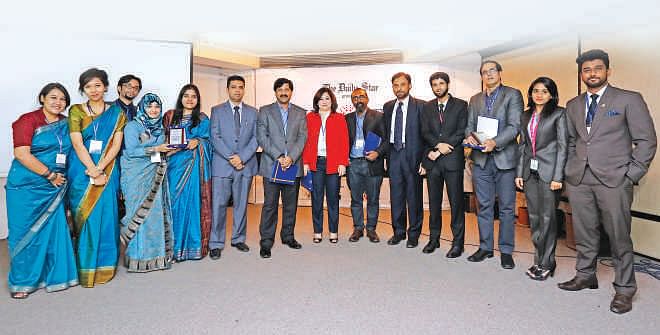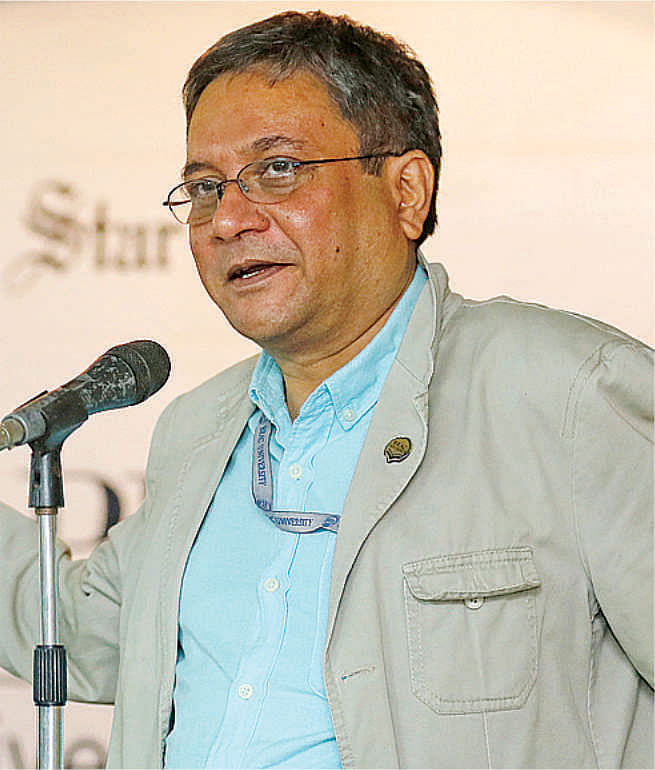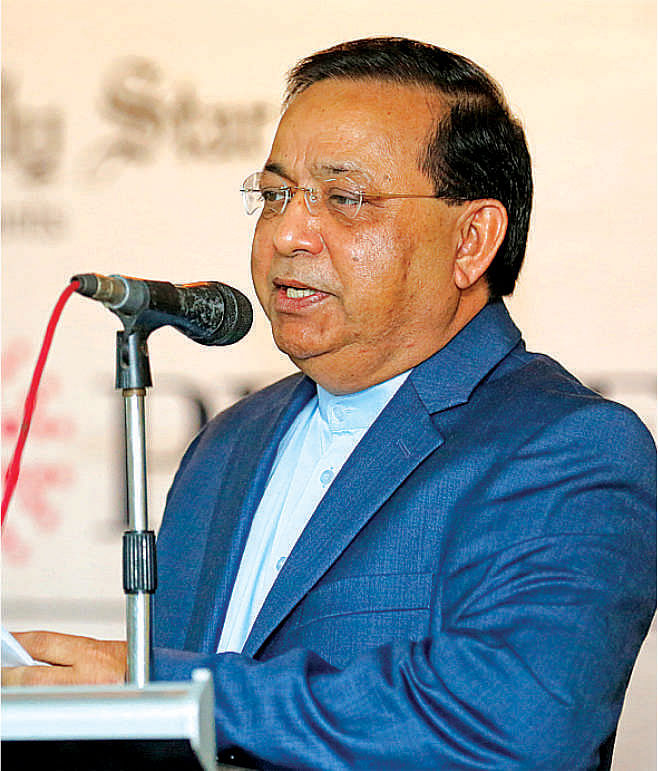HULT PRIZE EVENT AT BRAC UNIVERSITY

“We all know, those of us who are getting on with our years, that the brightest ideas come from young minds.” – Professor Fuad H. Mallick, Pro-Vice Chancellor, BRAC University.
Five students from BRAC Business School, BRAC University, took it upon themselves to organise the quarterfinal round of the 2015 edition of the largest student competition in the world – the Hult Prize. After 3 months of relentless effort, the event was held on December 6.
The Hult Prize event drives to extract from young minds innovative ideas in developing social businesses that tackle today’s issues. The Hult Foundation is hosting Hult Prize 2015 in partnership with Clinton Global Initiative. It is Bill Clinton himself who handpicked this year's challenge: the focal point of it was to create a social business plan to improve Early Childhood Education (ECE) in urban slums and to ensure that this reaches 10 million people in just 5 years.

The final round of the Hult Prize at BRAC University was hosted in the BRAC Center auditorium. The stakes were high. Five final teams – Kryptonite, Smallfoot, Prototype, Synergy and Roots – had to present their ideas in front of high profile judges and stood a chance to bypass the traditional approach and go straight to the regional round in one of 5 global locations – Shanghai, Dubai, London, Boston and San Francisco.
Michael McGrath (Country Director, Save the Children), Rashed Maqsood (Country Officer, Citibank Bangladesh), Tony Michael Gomes (Director – Communication & PR, Plan International) and Sonia Bashir (Country Manager, Microsoft Bangladesh) were eagerly waiting to test the ideas of the teams on: their intent to develop a curriculum, the sustainability and originality of it, and whether their proposed models are replicable on a global scale. The judges were also to analyse the financial aspects and see which team would best utilise the prize money of 1 million US Dollars. The logic and the content of the ideas held the highest value because at the end of the day, these enterprises had to produce results. Superficial promises and flashy animations had no place.
Before the teams presented, Professor Fuad H. Mallick said a few words on the theme of encouraging youth-centered idea generation. Mr. Abdul Matlub Ahmad, Chairman of Nitol-Niloy Group, spoke after him and said he was amazed at how the Hult International Business School reached out on such a global scale.


The first team to present their idea was team Kryptonite. Fahmida Mehreen, of Kryptonite, after their presentation said, “We were afraid, we had two thoughts in mind – one was that if we are really good it could be something great, or it could be a drawback if we don't set the bar high enough.” Despite their nervousness, Kryptonite and all the other teams that followed delivered eloquent speeches and established concrete business plans.
Each idea the teams had polished over months shone on stage. Kryptonite struggled to “win the battle with losing soldiers” with an institution that targeted to fulfill the needs of a child from prenatal stages. Second on stage, Smallfoot had a different approach, creating a device that could bring quality care to the children's doorsteps. Then Prototype introduced the heart-touching story of Rina, a girl in the Korail slum, and elaborated on their plans to adapt a curriculum to suit the redefined market. Synergy were next to come up on stage and introduce the infrastructure of a “Float house” which towers over the slums to provide the ideal environment for the children and also discuss how ethanol production could be used for electricity and revenue generation. The final team, Roots, gave their presentation on identifying the key difficulties slum children face, developing the “Theory of Change” and worked out a Country Based Business Utilization model.
The judges then had the difficult task of ranking all the teams. As the judges deliberated, the keynote speaker, Mr. Quazi Ahmed (CEO, Future Leaders) addressed the audience with an inspiring speech on positive thinking.
Right after that inspiring speech, anticipation reached its peak when the judges came on stage to announce the winners. Cheers and applause broke out when Kryptonite was declared the winner. Roots was the first runner-up, followed by Prototype, Synergy and Smallfoot.
The results were received gracefully. All the teams still retained faith in their ideas. Members of Roots said despite not having enough funds, they plan to implement their idea on a small scale in Korail. Mohammad Saad, of team Synergy, said they found out “what people actually want” and having their ideas tested and approved, they'll move forward with it. Smallfoot's Mustahsin Islam talked about how they are looking for investors.
Ecstatic about the results, team Kryptonite was in a celebratory spirit. Kryptonite members, all from BRAC Business School, have been friends since the beginning of their university lives and they had seen this as an opportunity to bond. Team leader, Maisha Zaman, acted as a critic striving for a better plan and together with their mentor, Syed Mahmudur Rahman, they had collaborated to attain this victory. When asked how they felt about the win, they said, “We were representing BRAC, and now we're going to represent Bangladesh.”
The event was in partnership with Clinton Global Initiative. It was sponsored by Nitol Motors Limited and powered by Radio Foorti. Global Affairs Forum of BRAC University was Logistics Partner, and The Daily Star was Media Partner.
PHOTOS: DARSHAN CHAKMA

 For all latest news, follow The Daily Star's Google News channel.
For all latest news, follow The Daily Star's Google News channel. 



Comments